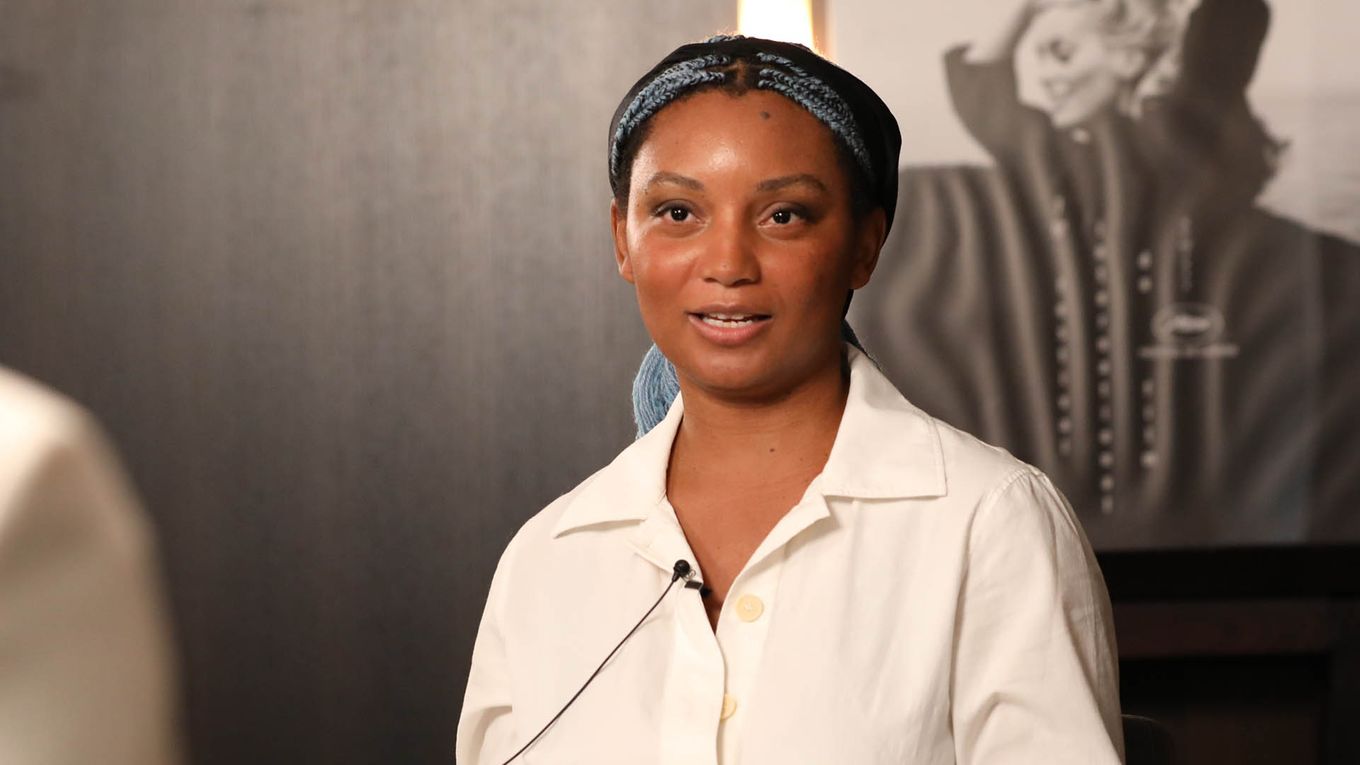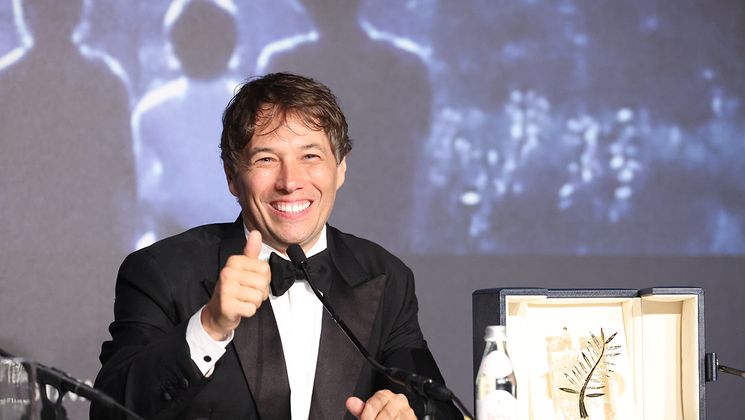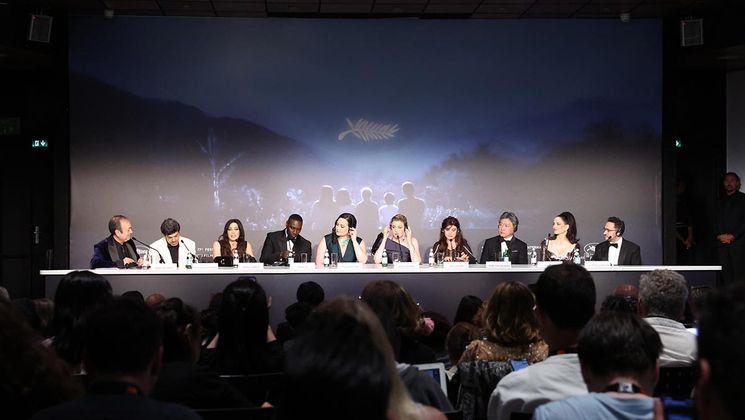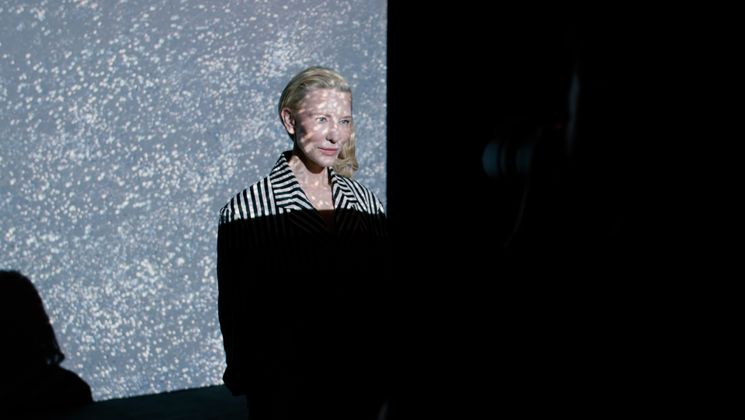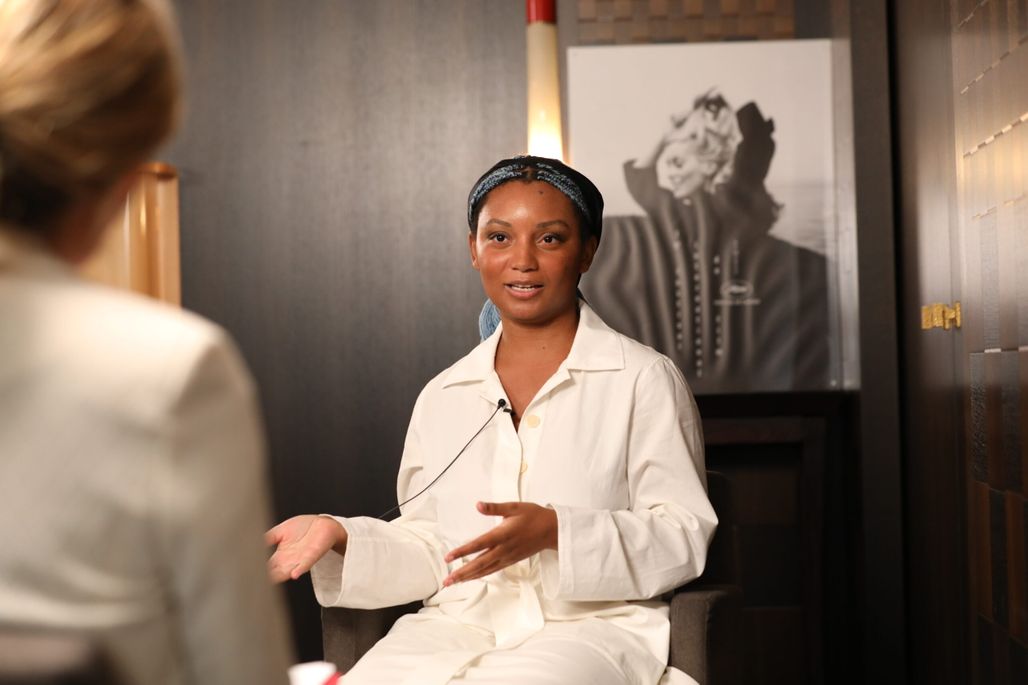
Meet Rungano Nyoni, member of the Feature Film Jury

A member of the Residence of the Festival in 2013, the Zambian filmmaker created a lot of buzz in 2018 with her first feature film, I’m Not a Witch, screened at Cannes and which won the BAFTA for best debut film. In the middle of preparing her next film, she has joined the Feature Film Jury for this 76th edition. A conversation about her working methods and the influences that fuel this film lover.
How has the dynamic of the group developed in Ruben Östlund’s Jury?
He took the reins very quickly, which is nice. Ruben Östlund has made a lot of efforts to create a good atmosphere, I think everyone on the jury is satisfied. Our exchanges have been friendly and diplomatic.
You are representing Zambia in the Feature Film Jury for the first time in the history of the Festival. What does that mean for you?
It means a lot for me. Not very many people are familiar with Zambia, so the stakes for this jury are even more important for me. In addition to showcasing my country, I also have the impression that I’m representing Africa as a continent, so the dimension is even bigger.
What are your references in terms of cinema? What inspires you?
I have very Western tastes in terms of film. I really like Paul Thomas Anderson. There are also classics with, for example, Stanley Kubrick. And Ruben Östlund is also one of my favourite filmmakers.
Have you had the opportunity to tell him?
No, absolutely not! I don’t want to seem like a groupie!
Fourteen years ago, you directed the short films 20 Questions and The List. What advice would you give to the Rungano Nyoni of 2009?
I think she’s the one who should give me advice. Young filmmakers take more risks: they invest their own money in their shoots and dare to do more things. Over the years, this audacity inevitably dwindles, as others begin to invest money in your work, and that makes you feel indebted. The project doesn’t belong just to us anymore, you have to deal with more and more people, so there are fewer risks being taken. The Rungano Nyoni of 2009 would surely advise me to be more daring in my projects.
What is your favourite step in the process of making a film?
I have a love/hate relationship with the process of writing a film. I love isolating myself to write. I work best when there’s no one around me, when there’s no interference with the outside world. The most complicated thing for me is afterwards, when there’s the confrontation between the fruit of this labour and the rest of the team of the film. That’s why writing can be both the best and worst thing.
Can you talk to us about your experience at the Residence of the Festival? What are your memories of it?
It was incredible. I was with five other young and very talented filmmakers, it was a little intimidating. We met with a lot of people and our group was very tight: it was like a summer camp. Everything went really quick and this team allowed me to keep my rhythm.
I woke up every morning seeing the logo of the Festival de Cannes, it was bewitching. We did a lot of cultural activities to develop our critical reflex in every domain. It was a way for us to nourish our cinema in another way.
You were born in Zambia, did your studies in London and you live in Lisbon…How have these stages in your life, these geographical areas, nourished your cinema, do you think?
The choice of somewhere to live is due more often to practical considerations than it is to a desire for artistic inspiration. I went to live in the UK to follow my mother in her studies. I then moved to London to become a film director, then moved to Paris. These cities and countries are very inspirational, but not as much as Lisbon, where I’m able to write without thinking about anything. Soon I’ll be moving to Brittany. So maybe my next films will be influenced by this region!
What is the most striking memory you have from a screening in a theatre?
It was a screening of Michael Haneke’s The White Ribbon. At the time, I didn’t like it, I found the film pretentious. Then the images stayed in my head, they possessed me. After a week, I had fallen in love with the work, which won the Palme d’or in 2009. Today it’s one of my favourite feature films. It’s like it’s engraved in my head, it’s a very strange sensation that I haven’t had with many films.
Can you talk to us about your next film, On Becoming a Guinea Fowl?
The editing is almost done. I’m at a crossroads with this new feature film. If everything goes well, people will be able to see it soon.
